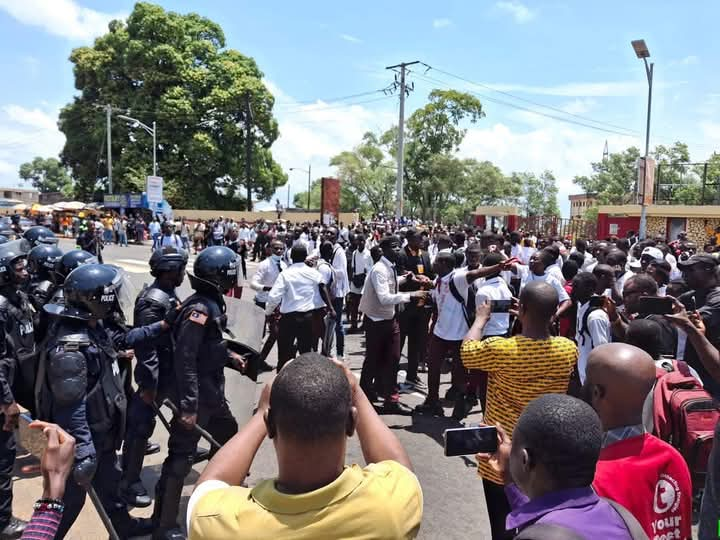The ongoing student protests in Monrovia, Liberia, have ignited a contentious debate over the legitimacy of the students’ grievances and the government’s response. The protests, sparked by a teacher’s strike over salary demands, have disrupted learning at the Monrovia Consolidated School System (MCSS), predominantly serving underprivileged students. Education Minister Dr. Jarso Maley Jallah has questioned the students’ motives, suggesting external manipulation and asserting that the protests are unjustified given the MCSS’s existing budget allocation for teacher salaries. This has further fueled the controversy, raising concerns about the government’s handling of the situation and its implications for the students’ right to express their concerns.
Dr. Jallah’s skepticism stems from her belief that the MCSS’s substantial budget, with a significant portion dedicated to teacher salaries, negates the need for protests. She has indicated that teacher salaries have been paid, thus casting doubt on the validity of the strike and, by extension, the student protests. Further, the Minister has revealed that the Ministry of Education, in conjunction with the Liberia National Police (LNP), is investigating potential instigators behind the student demonstrations, suggesting a belief that the protests are not organically driven by student concerns but rather orchestrated by external actors with ulterior motives. This suspicion of external influence has added another layer of complexity to the situation, creating a narrative of manipulation that diverts attention from the students’ genuine concerns about their disrupted education.
The students’ protests began as a plea to the government to address the teacher’s strike, which has left classrooms empty and their education in limbo. These students, primarily from disadvantaged backgrounds, face the added burden of educational disruption, jeopardizing their academic progress and preparation for crucial examinations like the West African Examination Council (WAEC). The teachers’ boycott of classes has brought the learning process to a standstill, further highlighting the precarity of their educational prospects and fueling their desperate call for intervention. The escalating tensions demonstrate the significant impact of the strike on the students, who are now caught in the crossfire of the dispute between the teachers and the government.
The situation took a dramatic turn when the LNP responded to the escalating student protests with excessive force, using tear gas, batons, and other aggressive tactics against the demonstrating students. This heavy-handed response resulted in multiple student injuries and widespread disruption, including the halting of activities at the University of Liberia and causing significant traffic congestion. The forceful dispersal of the student protests drew widespread condemnation, raising serious questions about the government’s approach to handling peaceful demonstrations and the welfare of students expressing their concerns. The incident underscores the delicate balance between maintaining order and respecting the right to peaceful assembly, particularly when dealing with young and vulnerable populations.
The government’s response to the protests, particularly the use of force by the LNP, has fueled criticism and raised concerns about the suppression of dissent. The forceful tactics employed against the protesting students have been viewed as disproportionate and have sparked public outcry. Critics argue that the government’s handling of the situation has escalated tensions rather than addressing the underlying issues that led to the protests. The incident has highlighted the importance of open dialogue and peaceful resolution of disputes, particularly those involving students exercising their right to protest.
The events in Monrovia underscore the critical role of education in a developing nation like Liberia and the complexities that arise when educational access is disrupted. The student protests, though initially sparked by a teacher’s strike, have evolved into a broader conversation about the government’s responsiveness to citizen concerns, the right to peaceful protest, and the use of force against vulnerable populations. The situation calls for a thorough investigation into the events leading up to and during the protests, including the LNP’s use of force, to ensure accountability and prevent similar incidents in the future. Furthermore, it necessitates a constructive dialogue between the government, teachers, and students to address the underlying issues that led to the strike and find a sustainable solution that safeguards the students’ right to education.














